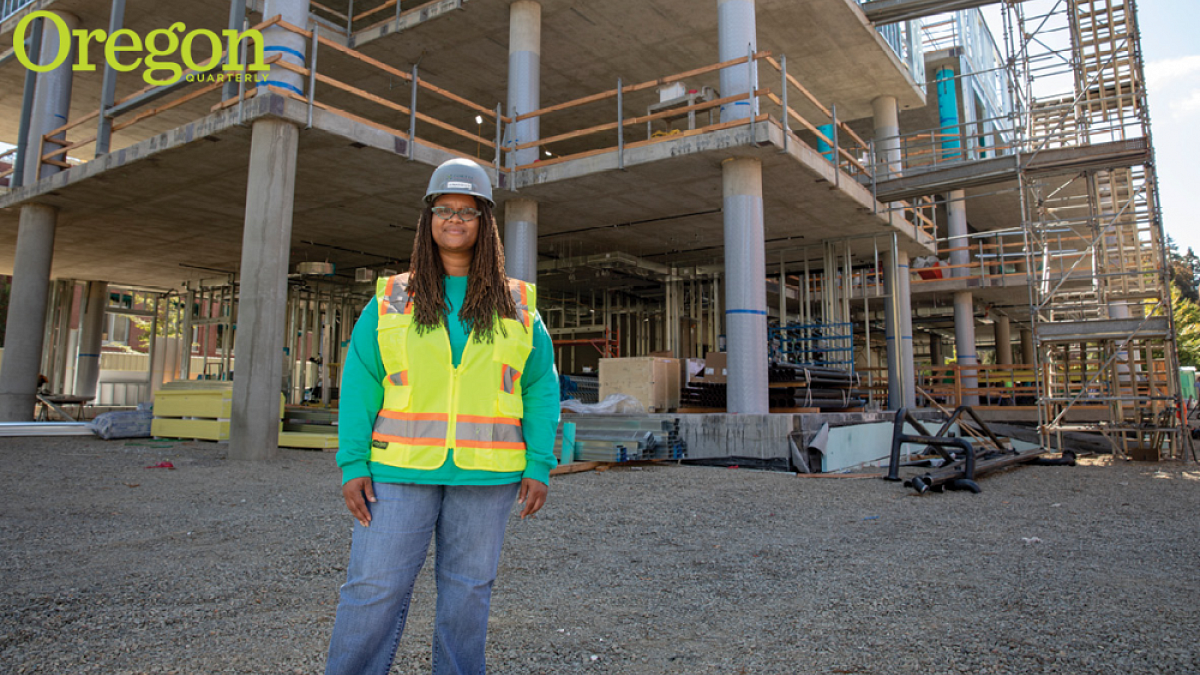Today, when students first come to the University of Oregon, they have a 45-minute advising appointment before signing up for fall classes. For some, it could be the last time they see an advisor.
As part of President Michael Schill’s student success initiative, the UO is launching an ambitious project to ensure every student receives substantial advising and support. The university is hiring nearly two dozen advisors to join the current ranks, helping students navigate their education and connect what they learn in the classroom with potential careers.
Willie and Donald Tykeson Hall, under construction and scheduled to open in fall 2019, will house the advisors, who will be cross-trained in academic and career advising. In addition, the UO Career Center will relocate to Tykeson Hall, providing career development and employee relations opportunities.
For first-year students, the changes will result in significant support early in their college experience, encouraging them to think in new ways about what it means to earn a degree.
“As we reenvision academic advising at UO, we are building a foundation for student success that will provide more opportunities to help our students navigate the university and achieve their goals,” says Doneka Scott, associate vice provost for student success and leader of the advising initiative.
Advisors will use “thematic areas of interest” to better understand the types of careers that interest students. The themes will overlap with and include multiple majors to serve a variety of students and create a more flexible view of how a major relates to a career. Rather than seeing a major as determining a specific job, students will be able to see how their passions interweave with skills that can be developed through classes and applied to a career.
“When students matriculate into college, major selection can be a significant cause of stress, as many students equate major choice with job determination,” says Scott. “Our goal is to minimize the associated anxiety by helping students understand there is more than one academic path to achieve their desired career choice. The thematic areas of interest will help students intentionally explore their options.”
Feedback from employers and alumni has been pivotal in ensuring the new advising resources will meet student needs and help them develop competitive skills for careers. Career development specialists in the Career Center will help students translate their undergraduate experience into competitive résumés and cover letters, hone their interviewing skills, and find opportunities that align students’ passions and career interests.
The initiative also brings a change for students still contemplating their major. The term “undeclared students”—traditionally describing those who have not chosen a major—will be replaced with the more positive and proactive term “exploring students.” The new term reflects the thematic approach to advising, as well as what a student is actually doing when he or she hasn’t chosen a major.
But this is only one example of the many ways in which students are being encouraged to rethink their futures.
“These new resources will continue to place our university at the forefront of student success,” Scott says. “Our intent is to meet students where they are, connect them with campus-wide opportunities, and help them match their academic experience with their career ambitions.”
—By Jesse Summers, University Communications


